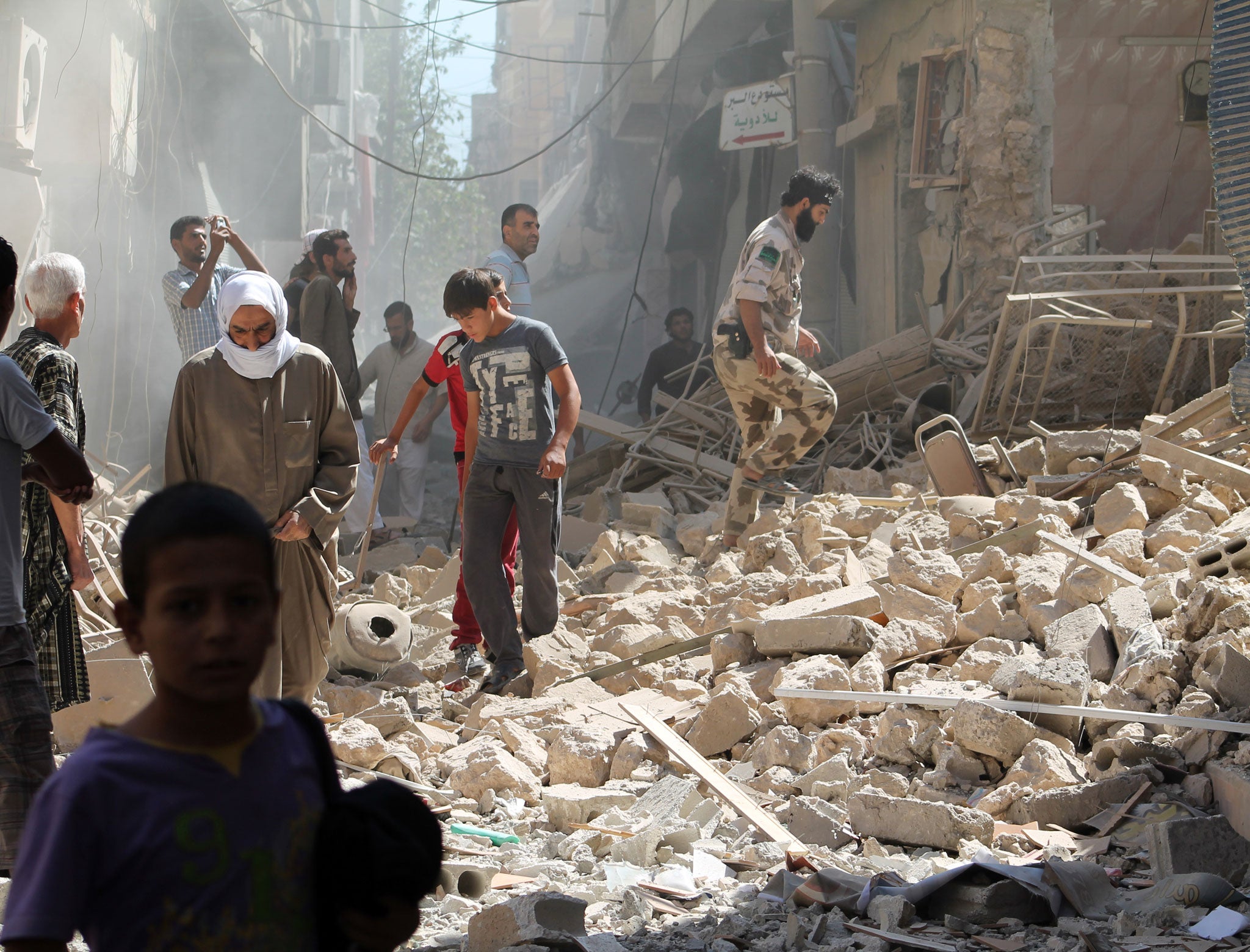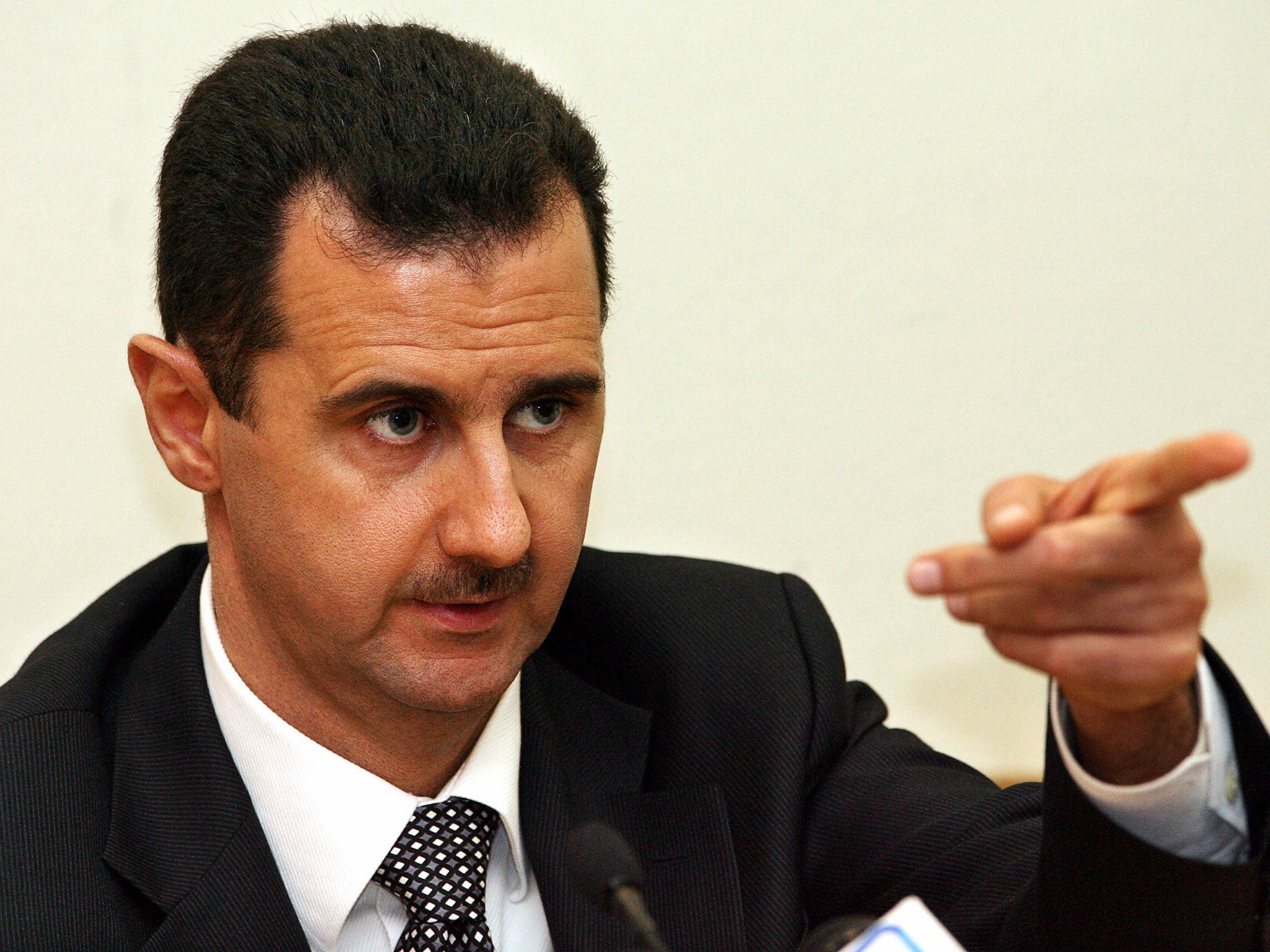The strengthening Islamic group Isis could hold the key to peace in Syria
A sustained campaign both sides of the border would weaken Isis and al-Qa’ida


Your support helps us to tell the story
From reproductive rights to climate change to Big Tech, The Independent is on the ground when the story is developing. Whether it's investigating the financials of Elon Musk's pro-Trump PAC or producing our latest documentary, 'The A Word', which shines a light on the American women fighting for reproductive rights, we know how important it is to parse out the facts from the messaging.
At such a critical moment in US history, we need reporters on the ground. Your donation allows us to keep sending journalists to speak to both sides of the story.
The Independent is trusted by Americans across the entire political spectrum. And unlike many other quality news outlets, we choose not to lock Americans out of our reporting and analysis with paywalls. We believe quality journalism should be available to everyone, paid for by those who can afford it.
Your support makes all the difference.This time last year the name Isis was better known as that of the ancient Egyptian goddess of fertility rather than a group of jihadist fighters engaged in extreme violence and instilling fear even by the bloody standards of Syria’s savage civil war.
Those following events in the region certainly know about the Islamic State of Iraq and Syria now. This extension of al-Qa’ida has emerged as the most powerful and effective among the rebels fighting Bashar al-Assad’s regime. Heavily armed, with a sizeable contingent of foreign jihadists, it had overrun some of the most well-defended of the regime’s military bases. And, at the same time, it had killed or driven out much of what was left of the moderate opposition.
Isis now also provides the shock troops of a resurgent al-Qa’ida in Iraq, leading the offensive in Anbar province and capturing large parts of Falluja and Ramadi, places synonymous with the insurgency against US forces during the occupation. Such is the worry about this that the US had rushed over Hellfire missiles and drones, with Prime Minister Nouri al-Maliki asking for more.
Back in northern Syria last autumn, after a break of several months, I was taken aback by the sheer dominance of Isis. It had supplanted Jabhat al-Nusra as the leading Salafist group, taking over towns, imposing the harshest form of Sharia law, commandeering aid distribution and using food to spread its influence.
At the time, however, they were in temporary retreat. The Syrian regime had crossed Barack Obama’s “red line” by the use of chemical weapons at Ghouta; air strikes were imminent and Isis was convinced that the US would take the opportunity to have a swipe of Tomahawks at them as well. We saw them moving their men, weapons and hostages away for their bases, in some instances all the way to Iraq.
The American military action did not, of course, take place. We watched the same convoys return and, in the time since then, expand their fiefdom in Syria, mainly at the expense of other rebel khatibas, or brigades, rather than the regime. At the same time, their presence in Anbar, where they are fed and watered and through which they got a lot of their supplies, had grown rapidly with the blessing of Ayman al-Zawahari, the successor of Osama bin Laden, with whom they have had an uneasy relationship at times in the past.
But are we, in fact, seeing a major strategic mistake by Isis? Have they overreached themselves? Occupying cities, as they are doing in Anbar, may be of symbolic value and generate publicity, but they are taking, and will continue to take, heavy casualties, especially in a conflict where state forces are prepared to accept a high level of collateral civilian casualties in carrying out ground and air assaults.
Isis has been forced to reinforce its fighters in Anbar from those in Syria. But there, for the first time since they began to hold sway, the group has been attacked by the rebels they had previously marginalised. The first reports of these could be treated with a degree of scepticism; these groups had been long on talk and short on military muscle in the past. But fighters I have spoken to in the more credible of these khatibas insist that they are taking the fight to Isis and will continue to do so.
This has been lent credence by an unprecedented exposure of weakness from Isis itself. They have complained of betrayal by fellow fighters in the jihad, of being stabbed in the back, their members have been killed, taken prisoner. If this continues, came the warning, they will leave Aleppo allowing the regime to retake the half of the city currently outside its control.
There have been at least a half-dozen places where Isis has come under fire. The Syrian Opposition Council, a cobbled together umbrella group of those in the “mainstream” opposed to President Assad, has been emboldened enough to declare that the Free Syrian Army, its military arm, will prosecute the campaign against “al-Qa’ida, which is a threat to the Syrian people and humanity as a whole”.
A sustained campaign both sides of the border will certainly weaken Isis and al-Qa’ida. But there are caveats. In Iraq, the Americans need to use their new leverage with Mr Maliki and his Shia-centred government to address the justified resentment in the Sunni communities at his policies which the Islamist extremists have exploited. The tribal militias will have to be reactivated and paid, which Baghdad has ceased doing.
In Syria there are doubts on just how long the other rebels would be able to maintain pressure on Isis. The second most powerful Islamist brigade, the Al Nusra Front, has so far remained “neutral” in this battle. It will be highly important which way they go. It has a far larger proportion of Syrians, rather than foreigners, in their ranks than Isis – young men who, the people in Aleppo and Idlib believe, can be assimilated back into society if and when the current madness ends.

Then there is the issue of whether President Assad’s forces would seek to take advantage of the situation to push forward? If they do so, the rebels may decide to patch over their differences to face the threat. Would the Russians, with their own problems with Islamist terrorism, try to stop the regime it sponsors from taking such action?
Lastly, with the battle lines being redrawn, Geneva II, the face-to-face talks between the Damascus regime and the opposition scheduled for later this month, may not be just a talking shop, as some have feared, but an opportunity to form alliances. Isis, and the need to deal with them, may provide the first hesitant steps towards peace sometime in the future.
Join our commenting forum
Join thought-provoking conversations, follow other Independent readers and see their replies
Comments